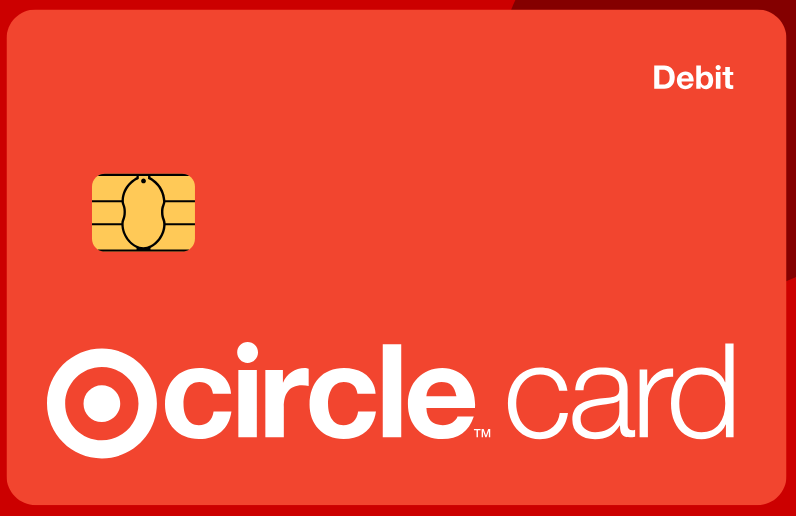- myFICO® Forums
- FICO Scoring and Other Credit Topics
- Understanding FICO® Scoring
- Re: Unpredictable score drop??? Bureaus are a TOTA...
- Subscribe to RSS Feed
- Mark Topic as New
- Mark Topic as Read
- Float this Topic for Current User
- Bookmark
- Subscribe
- Mute
- Printer Friendly Page
Unpredictable score drop??? Bureaus are a TOTAL joke
Is your credit card giving you the perks you want?
Browse credit cards from a variety of issuers to see if there's a better card for you.
- Mark as New
- Bookmark
- Subscribe
- Mute
- Subscribe to RSS Feed
- Permalink
- Report Inappropriate Content
Unpredictable score drop??? Bureaus are a TOTAL joke
I have not had a missed or late payment in over 5 years, no accounts closed or credit decrease, bankruptcy or foreclosure. Credit utilization always under 30% - usually under 15% ... NOW 0%. No negatives - ranked "Very Good" to "Exceptional" in every catagory ... and what do I get ... a 23 point drop from Experian, 15 point drop from Equifax and 12 point drop from TU.
I assume the latest drop was from paying off ALL my revolving credit over the past year. Apparently NOT using your available credit is just as bad as using too much. I tracked my -/+ point changes over the past year on all bureaus and there is no rhyme or reason to the algorithms, some balance decreases saw a 2-3 point spike, other times a balance decrease saw a 2-3 point drop. Balance increases also saw both random score drop or increase for approximately the same $$$ amounts.
Tell us the rules and we'll play by them. I can understand a tempoarary 2 point swing, but -23 is a certifiable joke.
- Mark as New
- Bookmark
- Subscribe
- Mute
- Subscribe to RSS Feed
- Permalink
- Report Inappropriate Content
Re: Unpredictable score drop??? Bureaus are a TOTAL joke
If one of your cards reports a balance of nearly any amount, you will get those points back
it's called an 'all zero penalty', if all of your cards report a $0 balance, you will lose points
if one card reports a balance, that penalty goes away and you get points back



Current FICO 8:

























- Mark as New
- Bookmark
- Subscribe
- Mute
- Subscribe to RSS Feed
- Permalink
- Report Inappropriate Content
Re: Unpredictable score drop??? Bureaus are a TOTAL joke
@SO-ANGRY-RIGHT-NOW wrote:I have not had a missed or late payment in over 5 years, no accounts closed or credit decrease, bankruptcy or foreclosure. Credit utilization always under 30% - usually under 15% ... NOW 0%. No negatives - ranked "Very Good" to "Exceptional" in every catagory ... and what do I get ... a 23 point drop from Experian, 15 point drop from Equifax and 12 point drop from TU.
I assume the latest drop was from paying off ALL my revolving credit over the past year. Apparently NOT using your available credit is just as bad as using too much. I tracked my -/+ point changes over the past year on all bureaus and there is no rhyme or reason to the algorithms, some balance decreases saw a 2-3 point spike, other times a balance decrease saw a 2-3 point drop. Balance increases also saw both random score drop or increase for approximately the same $$$ amounts.
In red you answered your question. 0% will do you in everytime. Stay around 6% and you'll be fine. Especially under 28%. You can ask for another username here:
https://ficoforums.myfico.com/t5/myFICO-Forums-Technical-Help/bd-p/forumsfeedback
Welcome to the forums. Watch the language please. Tx.
- Mark as New
- Bookmark
- Subscribe
- Mute
- Subscribe to RSS Feed
- Permalink
- Report Inappropriate Content
Re: Unpredictable score drop??? Bureaus are a TOTAL joke
Thank you both - was not aware such an insane penalty existed ... but it is what it is. Wish I knew that before paying off everything. I figured there may be temporary drop, but not 23 points right as I was prepping to buy a new SUV this week.
Lesson learned I guess, thank you.
- Mark as New
- Bookmark
- Subscribe
- Mute
- Subscribe to RSS Feed
- Permalink
- Report Inappropriate Content
Re: Unpredictable score drop??? Bureaus are a TOTAL joke
@SO-ANGRY-RIGHT-NOW wrote:Thank you both - was not aware such an insane penalty existed ... but it is what it is. Wish I knew that before paying off everything. I figured there may be temporary drop, but not 23 points right as I was prepping to buy a new SUV this week.
Lesson learned I guess, thank you.
Don't sweat it, your scores will bounce back next month if you have a single card reporting say, $5.00.
Chapter 13:
- Burned: AMEX, Chase, Citi, Wells Fargo, and South County Bank (now Bank of Southern California)
- Filed: 26-Feb-2015
- MoC: 01-Mar-2015
- 1st Payment (posted): 23-Mar-2015
- Last Payment (posted): 07-Feb-2020
- Discharged: 04-Mar-2020
- Closed: 23-Jun-2020
I categorically refuse to do AZEO!





In the proverbial sock drawer:



- Mark as New
- Bookmark
- Subscribe
- Mute
- Subscribe to RSS Feed
- Permalink
- Report Inappropriate Content
Re: Unpredictable score drop??? Bureaus are a TOTAL joke
Utilization has no memory. Next update let 1-6% report. You'll get back what you lost. Live and learn.
- Mark as New
- Bookmark
- Subscribe
- Mute
- Subscribe to RSS Feed
- Permalink
- Report Inappropriate Content
Re: Unpredictable score drop??? Bureaus are a TOTAL joke
I too have noticed that FICO scoring is exagerated by EXPERIAN. It is really weird.
A 23 point drop is quite hefty. I've experience drops of 6-8 points max in similar circumstances. What are your FICO scores?
- Mark as New
- Bookmark
- Subscribe
- Mute
- Subscribe to RSS Feed
- Permalink
- Report Inappropriate Content
Re: Unpredictable score drop??? Bureaus are a TOTAL joke
@SO-ANGRY-RIGHT-NOW wrote:I have not had a missed or late payment in over 5 years, no accounts closed or credit decrease, bankruptcy or foreclosure. Credit utilization always under 30% - usually under 15% ... NOW 0%. No negatives - ranked "Very Good" to "Exceptional" in every catagory ... and what do I get ... a 23 point drop from Experian, 15 point drop from Equifax and 12 point drop from TU.
I assume the latest drop was from paying off ALL my revolving credit over the past year. Apparently NOT using your available credit is just as bad as using too much. I tracked my -/+ point changes over the past year on all bureaus and there is no rhyme or reason to the algorithms, some balance decreases saw a 2-3 point spike, other times a balance decrease saw a 2-3 point drop. Balance increases also saw both random score drop or increase for approximately the same $$$ amounts.
Tell us the rules and we'll play by them. I can understand a tempoarary 2 point swing, but -23 is a certifiable joke.
If you're very good to exceptional in every category, your scores should be really high. A 23 point drop really shouldn't matter much.
The scoring system isn't a joke, but it is unintuitive. Based on a normal human sense of justice, if someone paid off their debts, our instinctive reaction is they should be rewarded. That comes from both a utilitarian perspective (they're showing good behavior, and we want to encourage that, so let's reward them), and a moral perspective (they did something good, and thus they should be rewarded and absolutely not punished). But the credit scoring companies aren't rewarding or punishing individuals based on some cosmic sense of justice. Instead, they're managing risk by looking at aggregate data. And they've discovered (IIRC) that people who just paid off all their debts have a higher than normal chance of going on spending sprees and getting themselves in trouble. So the score reflects that additional risk.
It's not a personal judgment. The score reduction is based on an increase in the number of outliers in one of the groups to which you belong. Just like if you're new credit, you'll be treated warily by potential lenders, even if you're the most responsible person in the world, because too many other people in the same group in the past defaulted or otherwise provided to be undesirable.
People like to argue that one side or the other is wrong, but I don't think that's particularly useful. The system is what is, and nothing I do will change it. So I find it more productive to learn the rules, and then use the system to my benefit. In this particular case, AZEO (All Zero Except One) may be the solution. Short verson: Leave a token balance on 1 card, and pay the rest to $0. Once all your cards report, you'll have the maximum possible score from utilization. The 1 card should be a bank card, and not a credit union card, retail/store card, or an AU card (for various and somewhat complex reasons). From a practical standpoint, AZEO all the time can be a bit of a pain, so I only bother with it when I'm applying for new credit. In normal times, my scores tend to fluctuate within a 20 point range or so. Which is harmless. My scores are fairly decent overall, so even if one of my current lenders does a soft pull at the nadir, it won't be enough to worry them.
- Mark as New
- Bookmark
- Subscribe
- Mute
- Subscribe to RSS Feed
- Permalink
- Report Inappropriate Content
Re: Unpredictable score drop??? Bureaus are a TOTAL joke
@Empires wrote:I too have noticed that FICO scoring is exagerated by EXPERIAN. It is really weird.
A 23 point drop is quite hefty. I've experience drops of 6-8 points max in similar circumstances. What are your FICO scores?
That seems fairly typical to me. Last time I got hit by the all zero penalty, I lost 17 points. (High 760s to 750ish EX 8, if it matters.)
Though I was a young file. Someone with a thicker and more mature profile may see less effect.
- Mark as New
- Bookmark
- Subscribe
- Mute
- Subscribe to RSS Feed
- Permalink
- Report Inappropriate Content
Re: Unpredictable score drop??? Bureaus are a TOTAL joke
They were 750-770 and climbing. This ding doesn't kill me, just really annoying trying to predict things. The sudden Experian drop was shocking.
My bank uses EQ for credit checks, so I tend to pay the most attention to their numbers. However, my EQ has a -3 (11/1/22) -4 (1/12/23) and a -10 (2/1/23) with no report change or reason noted. I had a corresponding +4 and +4 offsetting the -3 and -4 ... but I'm still -9 for no known reason. Maybe CC account inactivity, No clue???
TU has probably been the most stable of the three, so props to them for having some user clarity to their algorithm. EXP was reasonably stable up to the -23. I made a couple of small CC purchases and will see if my score rebounds next month or so.
It just feels like it is always two steps forward, one step back ... then occasionally 10 steps back destroying all the positive gains.